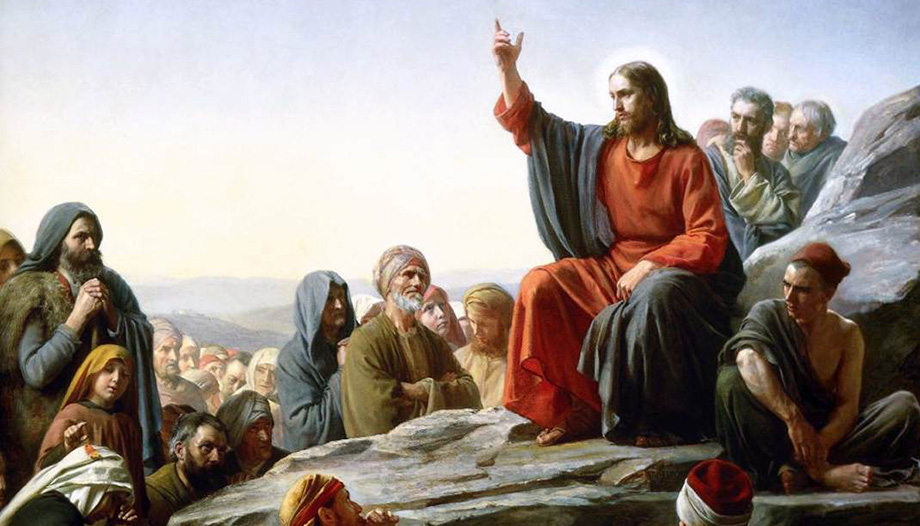Commentary on the readings for Sunday VI
We read the first part of the "sermon of the plain", that of the four "sermons of the plain".blessed" y "woe unto you". In Matthew, Jesus speaks of the beatitudes on a mountain. In Luke, he has just come down from the mountain where he had spent the night in prayer and where he called the Twelve. His descent reminds us of God's descent among us with the Incarnation. The plain is an image of our daily life. There, Jesus encounters a crowd of disciples, and a crowd of pagans from Tyre and Sidon.
This crowd is well described in two verses that are not read in the Gospel of the Mass: "They came to hear him and to be cured of their illnesses; those tormented by unclean spirits were cured, and all the people tried to touch him, because a power came out of him that cured them all.". These are the people to whom Jesus says ".blessed"You, the poor, who hunger and mourn. Jesus defines them in this way, not because of the evil they suffer, but because their destitution led them to seek Jesus, his grace and his word. Spiritual or material deprivation, pain and existential need, open to the search for God and the desire for his lasting and eternal good.
The fourth beatitude differs from the first three because it refers to the hardships that the disciples will have because they are persecuted in the name of Christ. It is a Gospel that calls us to a profound conversion of our way of thinking. Jesus tells us that we must not seek the consent of the world: "Oh, if everyone speaks well of you. This is what your fathers did with false prophets". On the contrary, Jesus tells us: "Blessed are you when men shall hate you, and shall cast you out, and shall revile you"and invites us to rejoice and jump for joy".for your reward will be great in heaven. This is what your fathers did with the prophets.". If he had told us: "accept with serenity this situation, or offer this sacrifice"This would already have been a request beyond human strength; all the more so, since it asks us to be filled with joy and exultation. It is impossible for us to do this with our own strength alone. As the Lord says in Jeremiah: we need to trust in him to be trees planted by the water of his grace in order to have, even in those trials, evergreens and ever-fresh fruit. For rejoicing, Luke uses the same verb with which Elizabeth said that the son leaped for joy in her womb at the voice of the Lord's mother. She rejoiced in the Holy Spirit and with Mary's voice. Let us ask the Holy Spirit to give us his strength to live this teaching of Jesus, so lofty, so sublime, so beyond our strength. And may Mary call us by name.
The homily on the readings of Sunday 21st Sunday
The priest Luis Herrera Campo offers its nanomiliaa small one-minute reflection for these readings.









